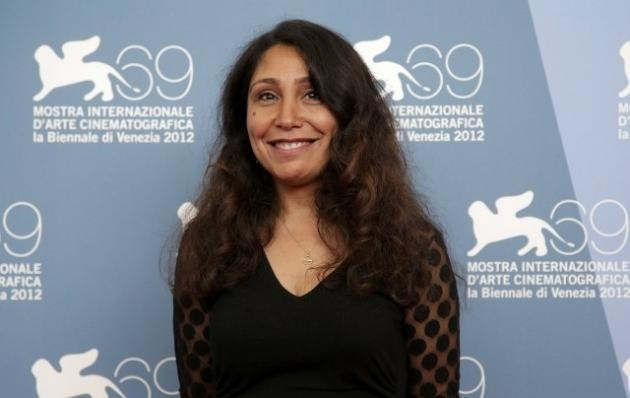Wadjda: First Film from Saudi Arabia Gives Women Hope of Change
Haifaa al-Mansour film highlights daily oppression of women in Saudi Arabia

In Saudi Arabia women are second-class citizens. The ultra-conservative Gulf state denies women the right to drive, vote, and open a bank account - even to be seen by a man while unaccompanied in public is forbidden. Such oppressive conditions have led to widespread condemnation from the international community over its gender apartheid.
But perhaps the most powerful voice against the misogynist regime comes from within. Wadjda, shown on the closing night of this year's Human Rights Watch Film Festival in London, is the first feature to be shot inside Saudi Arabia. What's even more remarkable is that the picture's director, Haifaa al-Mansour, is female.
For her to achieve this took great difficulty. The director avoided being seen in public by using a walkie-talkie to communicate with cast and crew while she was driven around the capital, Riyadh, in a van.
Mansour told reporters after the movie's premiere at ther 2012 Venice Film Festival that she hoped the film could make a difference. "It's easy to say it's a difficult, conservative place for a woman and do nothing about it, but we need to push forward and hope we can help make it a more relaxed and tolerant society," she said.
The film focuses on Wadjda (Waad Mohammed), a sanguine and enterprising 12-year-old girl who is scolded at home and at school for her rebellious spirit. Taking its inspiration from Italian neo-realist classic Bicycle Thieves, the movie is a simple tale of her efforts to buy a bicycle so that she can race a boy (Abdullrahman al-Gohani) she befriends.
Using the bike as a symbol of movement and freedom, Wadjda's efforts to acquire one is a humane and realistic portrayal of life in Saudi Arabia that manages to be both captivating and subversive.
With her angry parents refusing to buy her this forbidden object, Wadjda seeks to achieve her goal through the rather contrived scenario of a Koran recital competition with a 1,000 dirham prize. The irony here is that the only opportunity women have to express themselves is through singing the holy versus that the Islamic state fervently adheres to.
In one scene Wadjda's teacher scorns a classroom of girls for giggling by saying: "A woman's voice is her nakedness." Now her only hope of raising the money for a bike is to literally speak out. The school competition perfectly exposes the restrictions and hypocrisy that exists for women in Saudi society.

What's most impressive about the film is the way that is subtly underscores the daily prejudices that Saudi women face. Wadjda's mother (Reem Abdullah) faces the prospect of losing her husband because she cannot conceive more children and, most importantly, a male heir that he desires.
At a local shopping mall, the mother spots and tries on a dazzling red dress. Staring forlornly into the changing room mirror, the dress becomes like Wadjda's bicycle a symbol of liberation society will not accept.
Waad's magnetic performance as Wadjda anchors the film. Spirited and resolute, her steely determination to succeed is fuelled by her rebellious nature, much to the chagrin of her friends and family.
Reproached by her teachers and parents for failing to wear proper headscarves and shoes, she is determined not to be held to convention. Unlike what you might expect of other girls her age, she does not break down and get upset whenever obstacles are thrown in her way.
After the family driver refuses to transport Wadjda's mother any more, effectively trapping her in their home, she ventures out into the city to find him in order to make him change his mind. Matching the director's endeavour, it's through using her wits that she overcomes the challenges and refuses to accept the future that society is dictating for her.
The film is part of a cultural shift in Saudi Arabia where the march towards gender equality is slowly but surely gathering pace. During last summer's London Olympics, 800m runner Sarah Attar and judoka Wojdan Shaherkani made history by becoming the first women athletes from Saudi Arabia to compete at the Games. Through their participation, the plight of women in the country was given global attention.
Similarly, if Wadjda can find a mainstream audience, it will only increase the international pressure on the country. Mansour has crafted a remarkable film that shows you not only an intimate portrayal of life for women in Saudi Arabia, but also the cracks in the patriarchal society that are starting to emerge as women's rights are brought to the forefront.
Wadjda will be released in cinemas across the UK on 19 July.
© Copyright IBTimes 2025. All rights reserved.




















